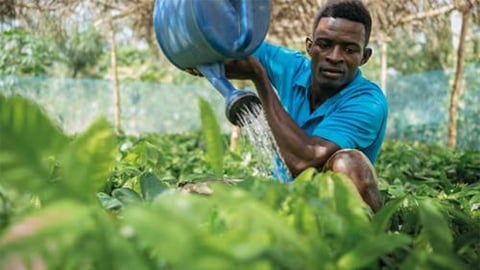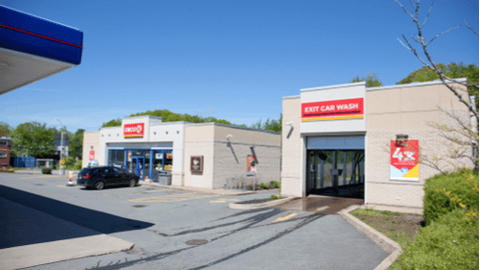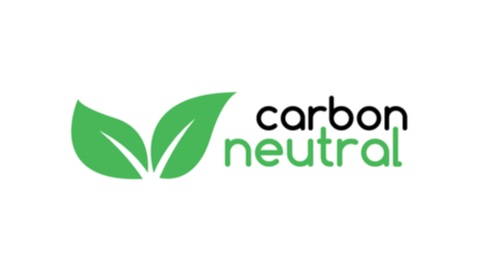Sustainability shifts into high gear
Survey after survey shows consumer awareness is higher than ever that product packaging contributes to plastic waste in landfills or as litter in waterways.
However, after the pandemic hit, the top-ranked criteria driving consumers’ food and beverage purchases shifted to hygiene, food safety and shelf life, according to an August 2020 global survey from McKinsey & Company.
But that doesn’t mean consumers aren’t watching for products packaged in a way that reduces waste, conserves energy and curbs carbon footprint. The survey found 55% of consumers are extremely or very concerned about the environmental impact of packaging and would buy additional sustainably packaged products if more of them were available and they were better labelled.
McKinsey’s study also found that COVID-19 crisis has significantly heightened consumer sensitivity to new preferences for packaging materials—in particular, recyclable and recycled packaging and in-fiber based substitutes.
Jordan Fengel, sustainability manager, U.S. and Canada at Tetra Pak—whose low-carbon-footprint carton packaging is used in Canada by the likes of Coca-Cola on its juice brands, Flow Water, Lassonde and Grand Pré milk—says their recent consumer tracking has found increased attention on packaging. Consumers want it to be “higher performing in terms of longer shelf life,” he says, but also environmentally sustainable. “Once we come out of the pandemic, I think sustainability will regain its top position as a consumer focus, which is why we haven’t seen food and beverage vendors back away from announcing new commitments.” (see “Setting new goals”.)
In other words, sustainability is no trend. Rather, it is a critical issue for both c-stores and their product suppliers around the globe and here in Canada, due, in part, to new federal plastics regulation. It stipulates that all plastics sold in Canada be made from at least 50% recycled material by 2030.
“Packaging serves a critical role in maintaining both freshness and safety, but waste from plastic packaging is a growing issue,” says Katya Hantel, senior director of sustainability at Conagra Brands. “Sustainable packaging solutions is one part of Conagra’s broader commitment to responsible sourcing.”
“Sustainability can absolutely be a competitive advantage,” agrees Brianna Ames, director, public affairs, comms and sustainability at Coca-Cola Canada, which is testing a paper bottle. (see “Repackaged: New innovations”.) “Consumers care more and more about the environment and have higher expectations for companies to do their part.”
Major c-store operators are also all-in on sustainability as an overarching business imperative. By 2025, Couche-Tard has promised to increase sustainable packaging for foodservice and private brand consumable products by 25% over 2020. And by 2030, it hopes 100% of the packaging will be recyclable or reusable.
“For us, sustainability has evolved from being individual actions by teams within the company to now being a business lens across our entire organization,” says Helena Winberg, Couche-Tard’s director of global sustainability. “This is how we can ensure that we are having the most impact for all our stakeholders and connect the dots of individual contributors.”
But to ensure there is no breakdown in building a ‘circular economy’—recapturing the value of the materials used in packaging for new packaging—it needs to be recycled. That is where both big and small c-store operators can individually play an important role at the ground level (see “Bin it to win it”).
In addition to packaging, Mackenzie Davison, growth lead at Mondelēz Canada, says “consumer awareness and understanding of sustainability sourced products is increasing” as well. It has added a ‘Cocoa Life’ logo to its chocolate products, to let consumers know that their cocoa is sustainably sourced. “We want to give our consumers the confidence that whenever they buy Mondelēz products, it will not only taste good, but do good too.”
- Paper bottles
This spring, Coca-Cola will debut its first paper bottle when its plant-based drink, AdeZ, is tested in Europe. The bottle is made of sustainably sourced wood by Danish start-up Paboco (Paper Bottle Company) and features a bio-based lining that acts as a waterproof barrier to prevent the bottle from getting soggy. Brianna Ames, director, public affairs, comms and sustainability at Coca-Cola Canada, says “design is a key pillar within our ‘World Without Waste’ initiative.”
- ‘Smart’ packaging
Nestlé is switching Smarties to recyclable paper packaging, “which will be available in Canada beginning late April,” says Catherine O’Brien, SVP, corporate communications for Nestlé Canada.“We are excited to be the first global confectionery brand to shift to paper packaging.” This represents a transition of 90% of the Smarties product skew, and eliminates about 250 million plastic packs sold worldwide.
- Cannister to cube
Canisters are the conventional shape for products like hot chocolate mix, but they aren’t eco-friendly and take up a lot of space on shelf. In the U.S., Conagra has moved from round canisters to a more eco- and space-efficient recyclable plastic cube for its Swiss Miss Hot Cocoa line. The new design reduces the carbon footprint associated with manufacturing and transporting the hot cocoa containers by 15%.
SETTING NEW GOALS
In March, Hershey set a new pledge to reduce packaging weight an additional 25 million pounds by 2030. It also aims to have 100% of its plastic packaging be recyclable, reusable or compostable by 2030.
Also in March, Mondelez increased its commitment to reduce the use of virgin plastics in rigid plastic packaging by 25%. This equates to an overall 5% reduction in virgin plastic use.
In January, PepsiCo announced plans targeting a reduction of absolute greenhouse gas (GHG) emissions across its value chain by more than 40% by 2030 and net-zero emissions by 2040. The company is in the midst of a 2017 commitment to ensure 100% of its packaging is recoverable or recyclable by 2025.
In December 2020, Nestlé laid out a global roadmap to achieve net zero greenhouse gas (GHG) emissions by 2050. Currently, 87% of its packaging is recyclable or reusable and the plan is to ensure 100% is reusable or recyclable by 2025.
More than 40 partners came together to form the Canada Plastics Pact (CPP) in January. Jim Goetz, president of the Canadian Beverage Association (one of the CPP’s founding members. along with the likes of Coca-Cola Canada and Keurig Dr Pepper Canada), calls it a think tank between industry, NGOs and other stakeholders. “It will be about discussing how we can achieve both the goals of the province and the federal government in reducing plastic pollution and growing the circular economy in Canada,” he says.
Ferrara, manufacturer of candy brands like SweeTARTS and Nerds, pledged in December 2020 to make all packaging 100% reusable, recyclable or compostable by 2025.
Bin it to win it
There is something c-store operators can do at the store level that has proven to help in a big way with creating a sustainable, circular economy and that gets customers involved: enable them to recycle while exiting the store and while refueling or charging their vehicles.
A “waste audit” from the Canadian Beverage Container Recycling Association (CBCRA) found that 63% of the contents thrown into the garbage both in front of a c-store and at their gas pumps without blue bins is recyclable. Of that recyclable content, 2% to 8% is beverage containers.
In Manitoba, when 7-Eleven stores with gas stations had recycling dispensers for customers installed for the first time in 2019 and 2020, the CBCRA found most recyclable content came out of the garbage –82% to 93% of it—and into their proper receptacle.
“It is amazing how many people clean out their car while filling it up with gas, but a lot of them don’t wait until they get home to dispose of the recyclables,” says Ken Friesen, CBCRA’s executive director. “But if you make it convenient for them—which is what a convenience store is supposed to do—customers take the care to recycle.”
A side benefit for c-store owners involved in the 7-Eleven project: less litter around their stores.
“When people have a choice of both a garbage and recycle bin, they seem to take more care about disposing things in the garbage, too, like candy wrappers and chip bags,” says Friesen.
By adding a recycling program, c-stores will also be supporting the ramped-up efforts of their key vendors.
Beverage and snack manufacturers in Canada are looking to do a better job of encouraging consumers to recycle. Coca-Cola, for instance, told Convenience Store News Canada it has created four new “Recycle Me” messages for its soft drink, smartwater and Gold Peak bottles. Each bottle will feature one of the new labels starting this year.
Catherine O’Brien, SVP, corporate communications for Nestlé Canada—who is responsible for its environmental sustainable strategy—says the company aims to have 100% of packaging recyclable or reusable by 2025, up from the current rate of 87%.
“Across our products and with our employees, we try to emphasize and educate proper recycling practices. This same practice can be cascaded to Canadian consumers at convenience stores with in-store signage,” she says.
Mondelez International—which makes brands like Caramilk chocolate bars, Dentyne Ice gum and Halls cough drops—has committed to making 100% of its packaging recycle-ready by 2025 as well and with recycling labeling information.
“It is part of our plan to deliver on our long-term vision for zero net waste packaging,” says Mackenzie Davison, growth lead at Mondelēz Canada.
This article originally appeared in the May/June 2021 issue of Convenience Store News Canada.








